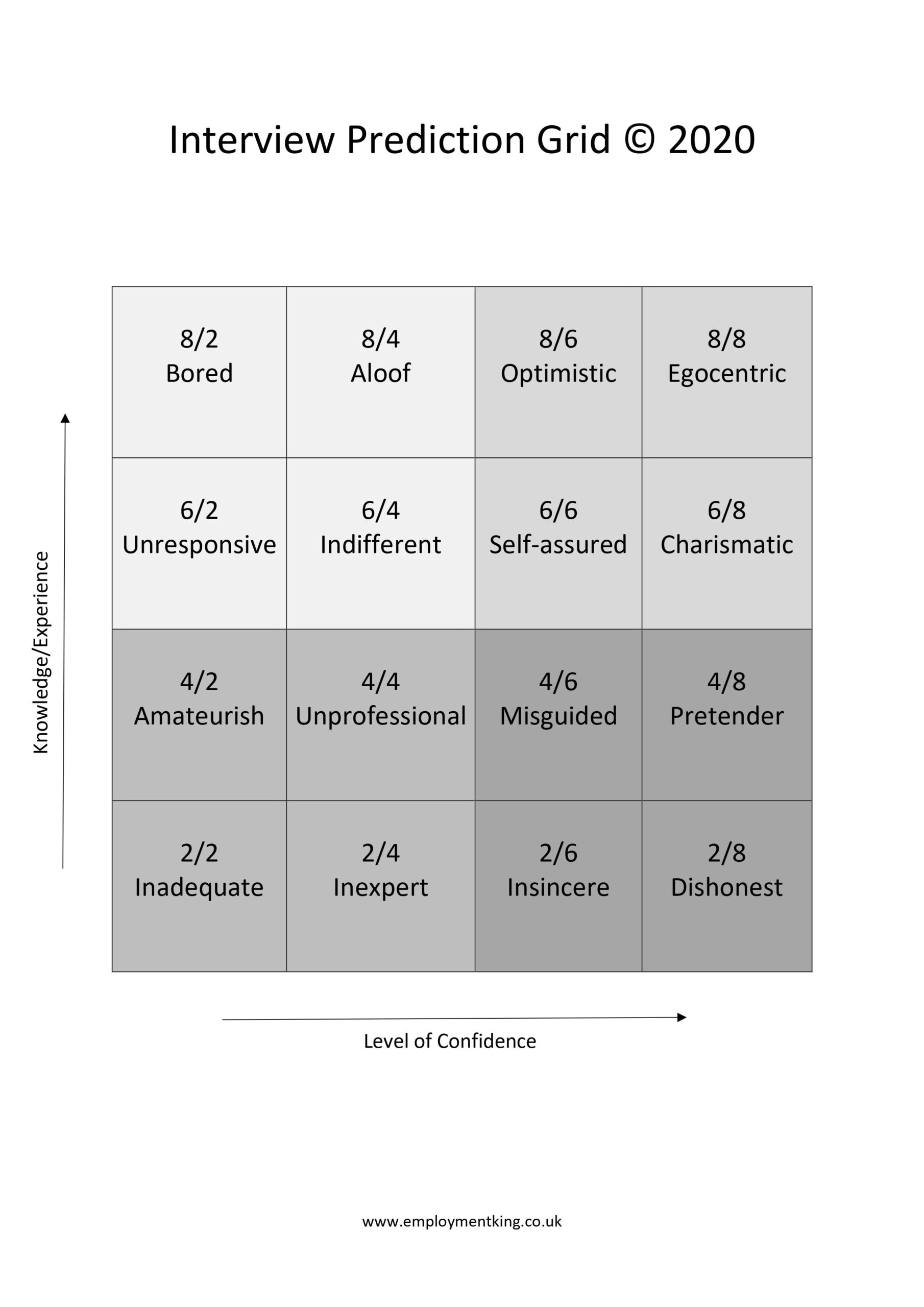Congratulations on completing the Interview Prediction Grid Test (IPG) ©2020.
Below is a breakdown of your Interview Identity
2/4 Inexpert

Showing a lack of knowledge/experience creates a persona of being inexpert.
Knowledge and experience, at this level of job role, include soft skills: communication, teamwork, problem-solving. Voluntary employers may recruit a 2/4 – Inexpert, due to the interviewee’s sufficient level of confidence – as this shows potential, only if the pool of applicants is low.
Employers will be aware of the interviewee’s nervousness and lack of sector experience, which affects the job interview outcome, but some organisations could be willing to spend time to develop the applicant once employed.
Strengths
For voluntary positions interviewers ask, in the main, skill-based questions, “Give me an example of using customer service skills?” When discussing personal experiences (as they often lack job experience) relevant to the required skill(s), the 2/4 – Inexpert’s confidence is sufficient, enabling the interviewee to talk at ease.
Keeping focused on familiar topics, rather than pretending to be more aware about a subject than the applicant actually is, will increase self-belief during the job interview, improving likeability.
Development
When applying for low level positions, interviewers will stay away from challenging questions asked in more senior level roles. With this in mind, applicants need to follow rule 1 for a successful job interview – identifying the job criteria. By understanding which soft skills, the employer requires, the interviewee can create relevant answers highlighting these criteria.
The lack of knowledge/experience is the barrier here; as a result, increasing this slightly can make the difference between rejections and job offers. Knowledge and expertise are gained in two ways: work experience or education.
If voluntary roles (for experience) are hard to gain, the 2/4 – Inexpert needs to take the educational route. This can include entry level courses to GCSEs/BTECs or even specific short courses to gain skills and qualifications: a food-hygiene certificate for a catering role. The course choice will depend on the career goal for each individual.
What is important is that attending education improves knowledge/experience, giving the interviewee something relevant to discuss in the job interview.

Advice for the job interview
- Relate answers to the job criteria to avoid going off topic. Replies lacking evidence of how an applicant can complete the job duties won’t score high
- Use real-life examples to highlight a particular skill set. Discuss what actions you took, focusing the interview answer on your role within the team task
- Generate conversations prior to the start of the interview and highlight commonalities, as this increases rapport
Research: IPG






